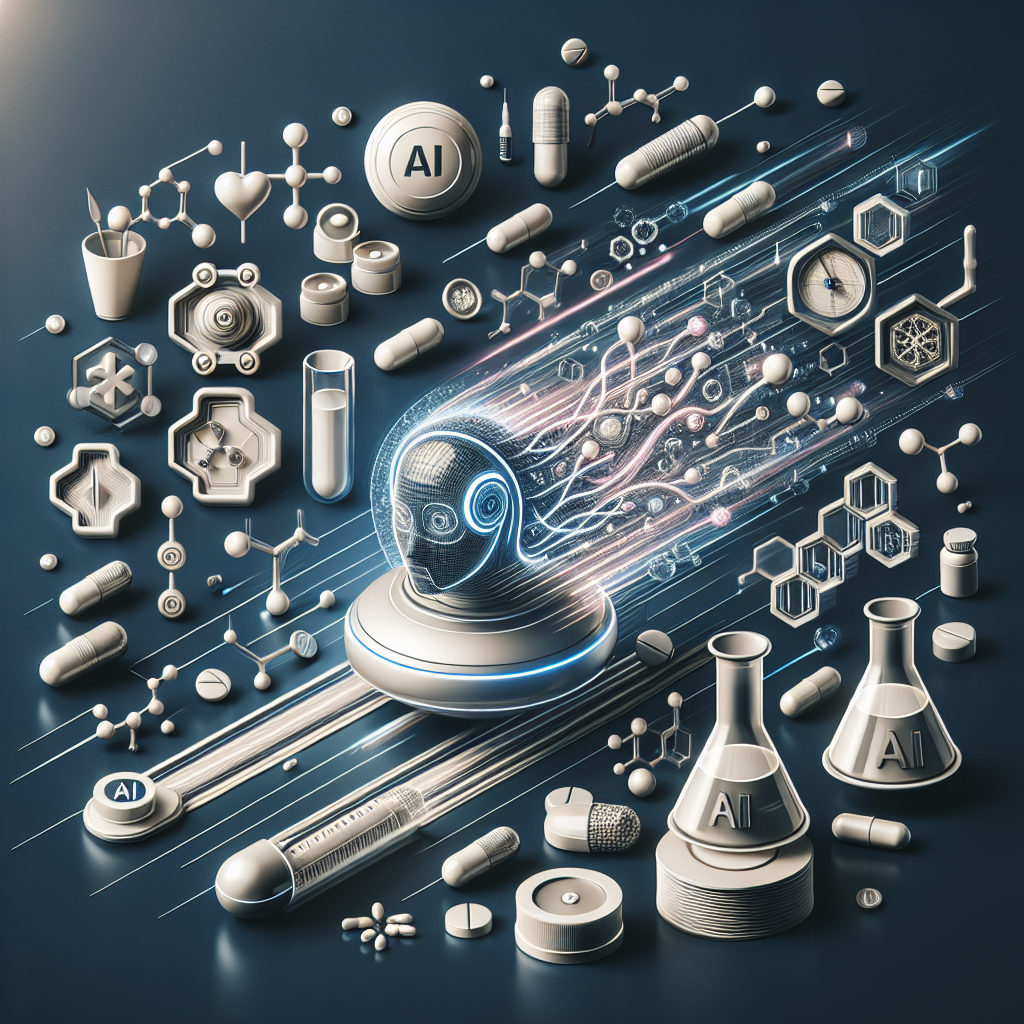The Role of AI in Drug Discovery: Accelerating Research and Development
In recent years, the field of drug discovery has been revolutionized by the use of artificial intelligence (AI) technologies. AI has the potential to significantly accelerate the process of drug discovery by helping researchers identify promising drug candidates more quickly and efficiently than ever before. This has the potential to not only speed up the development of new medicines but also to reduce the costs and risks associated with bringing new drugs to market.
AI has the ability to analyze vast amounts of data and identify patterns and relationships that would be impossible for human researchers to uncover on their own. This can help researchers identify potential drug targets, predict the effectiveness of drug candidates, and optimize the design of new drugs. By leveraging AI technologies, researchers can streamline the drug discovery process and bring new medicines to market more quickly.
One of the key ways in which AI is being used in drug discovery is in the identification of potential drug targets. Drug targets are molecules within the body that are involved in disease processes and that can be targeted by drugs to treat or prevent the disease. AI can analyze vast amounts of data from sources such as genetic databases, protein structures, and scientific literature to identify potential drug targets that are likely to be effective in treating a particular disease.
AI can also be used to predict the effectiveness of drug candidates. By analyzing the chemical structure of a potential drug candidate and comparing it to known drugs that have been successful in treating similar diseases, AI can help researchers predict how effective a new drug candidate is likely to be. This can help researchers prioritize which drug candidates to pursue further and which are unlikely to be successful.
Another way in which AI is being used in drug discovery is in the optimization of drug design. By analyzing data on the interactions between drugs and their targets, AI can help researchers design drugs that are more likely to be effective and less likely to cause side effects. This can help researchers develop safer and more effective drugs more quickly.
Overall, AI has the potential to transform the field of drug discovery by accelerating the research and development process and bringing new medicines to market more quickly. By leveraging AI technologies, researchers can identify promising drug targets, predict the effectiveness of drug candidates, and optimize the design of new drugs. This can help to reduce the time and cost associated with bringing new drugs to market and ultimately improve patient outcomes.
FAQs:
Q: What are some examples of AI technologies being used in drug discovery?
A: There are a variety of AI technologies being used in drug discovery, including machine learning, deep learning, natural language processing, and robotics. These technologies can help researchers analyze vast amounts of data, predict the effectiveness of drug candidates, and optimize the design of new drugs.
Q: How can AI help to accelerate the drug discovery process?
A: AI can help to accelerate the drug discovery process by helping researchers identify promising drug targets, predict the effectiveness of drug candidates, and optimize the design of new drugs. By leveraging AI technologies, researchers can streamline the drug discovery process and bring new medicines to market more quickly.
Q: What are some of the challenges associated with using AI in drug discovery?
A: One of the challenges associated with using AI in drug discovery is the need for high-quality data. AI technologies rely on large amounts of data to make accurate predictions, so researchers must ensure that the data they are using is accurate and reliable. Additionally, there are ethical considerations around the use of AI in drug discovery, such as ensuring that patient data is used responsibly and ethically.
Q: What are some of the potential benefits of using AI in drug discovery?
A: Some of the potential benefits of using AI in drug discovery include accelerating the research and development process, reducing the time and cost associated with bringing new drugs to market, and improving patient outcomes. By leveraging AI technologies, researchers can identify promising drug targets, predict the effectiveness of drug candidates, and optimize the design of new drugs.
In conclusion, AI has the potential to revolutionize the field of drug discovery by accelerating the research and development process and bringing new medicines to market more quickly. By leveraging AI technologies, researchers can identify promising drug targets, predict the effectiveness of drug candidates, and optimize the design of new drugs. This can help to reduce the time and cost associated with bringing new drugs to market and ultimately improve patient outcomes.

